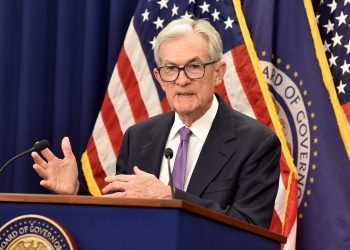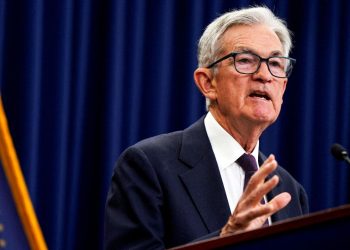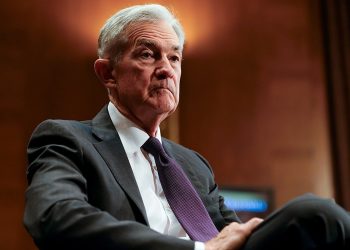(Reuters) -World markets head into year-end on a “buy everything” high, with the Federal Reserve signalling it will switch to rate cuts in 2024, propelling stocks and gold higher.
Meanwhile, the Bank of Japan could finally hint at an end to its ultra-loose monetary policy. The road into 2024 for investors could be bumpy.
Here’s your week ahead in markets from Lewis Krauskopf in New York, Kevin Buckland in Tokyo, Naomi Rovnick, Marc Jones and Amanda Cooper in London.
1/ROLE REVERSAL
Speculation is rife the Bank of Japan (BOJ) may soon exit negative interest rates, again making it a global outlier as the focus at the Fed and others turns to when to cut rates.
A change likely won’t come as soon as the policy decision on Tuesday, but the BOJ meets again in January, and next week could be used to prepare the way for tightening.
That expected pivot, plus the Fed’s dovish tilt, has pushed the yen back to the stronger side of 141 per dollar for the first time since July.
A political scandal over suspected kickbacks could ironically provide a tailwind to ending easing, as Prime Minister Fumio Kishida clears his cabinet of pro-stimulus elements.
A reversal of politically unpopular yen weakness may help his sagging approval ratings, but the speed of yen strength could also be damaging. The has lagged most other major stock indices this month.
2INFLATION WANING?
Investors hope a key U.S. inflation gauge will show easing consumer price pressures, after the Fed signalled its campaign of interest rate hikes is ending and cuts may arrive next year.
The Dec. 22 release of November’s personal consumption expenditures (PCE) price index, which the Fed tracks, will be one of the last key pieces of data this year. Fed Chair Jerome Powell has said the historic tightening of monetary policy is likely over and discussion of rate cuts is coming “into view”.
Data on consumer confidence, as investors seek to gauge how much higher interest rates may be weighing on spending, is also due out. Whether the Fed has been able to engineer a soft landing for the U.S. economy is a key market theme as the calendar flips to 2024.
3/ GOLD STAR
Gold is heading for its first annual increase since 2020, fuelled by a weaker dollar and by the view that interest rates and inflation are going one way and fast in 2024.
Gold, which bears no interest, tends to perform better in an environment of falling real rates, those adjusted for inflation.
Real U.S. 10-year yields have been rising non-stop since early 2022, but only turned positive in June, knocking gold back from a near-record. They are now at their highest in eight years, but this has been no barrier to gold vaulting above $2,000 an ounce. And yet the price is still some 20% below its inflation-adjusted all-time high above $2,500 in 1980.
Investors are banking on a flurry of rate cuts next year, while political and economic uncertainty are on the rise – potentially heralding a sweet spot for gold investors.
4/ INFLATION NATION
UK inflation is running at more than double the Bank of England’s (BoE) 2% target. Latest data on Dec. 20 may confirm UK price pressures remain elevated compared to other major economies.
The pound hit a three-month high against the euro this month after euro zone inflation dropped sharply, fuelling speculation the BoE will take longer to cut rates than the European Central Bank.
But high rates could also tip the UK economy, which the BoE expects to flat-line in 2024, into recession, meaning sterling strength is not a one-way bet. The pound’s fate rests on whether the BoE keeps reacting to current inflation trends, or takes the longer-term view that economic weakness will dampen wages and prices.
5/DOWN THE NILE
Egyptian President Abdel Fattah al-Sisi’s third straight election win should be officially confirmed on Monday. With little in the way of opposition, the former general has cruised this one, but faces a daunting list of challenges.
War in Gaza is raging next door and Egypt is grappling with an economic crisis fuelled by near-record inflation and past borrowing sprees that mean its debt interest payments alone now eat up almost half the government’s revenues.
Economists say that is unsustainable. At least $42.26 billion is due in 2024, including $4.89 billion to the International Monetary Fund.
The first move after the election looks set to be another big currency devaluation. Egypt’s pound has already halved against the dollar since March 2022. A dollar now fetches about 49 Egyptian pounds on the black market versus an official rate of 31 pounds. FX forwards markets say the same.
Read the full article here









